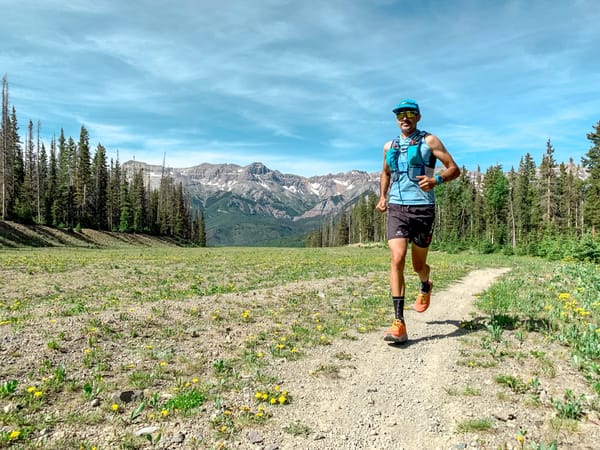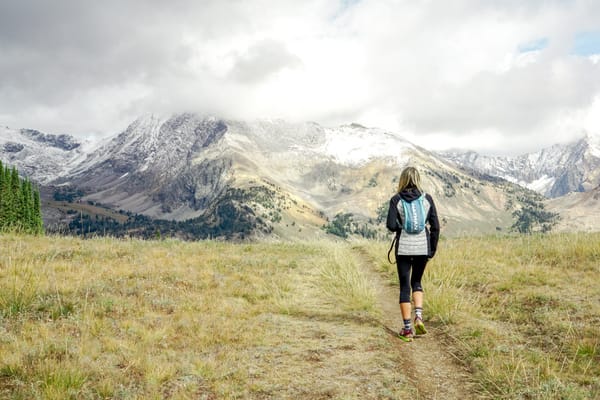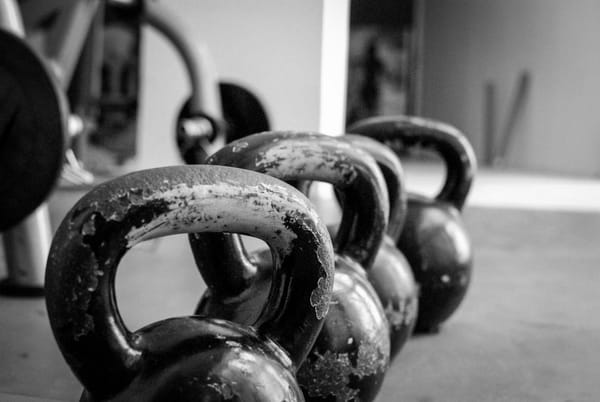Wayfinder 71 / Exercise and Depression + Recycling is Broken
"The good of going into the mountains is that life is reconsidered; it is far from the slavery of your own modes of living." — Ralph Waldo Emerson
Does Dirt Make You Happy? →
Getting dirty for our overall wellbeing is science. Exposure to dirt and things outside exposes us to microorganisms that feed the ecosystem of being human. Mental wellness should include a balanced approach to physical exercise, but as well should require a fair amount of simply being out in nature.
The regulation of the immune system is indeed connected to the biodiversity of the natural environment. We benefit from being outdoors and exposed to things like soil and animals, because of the fact that we’re exposed to microorganisms.
That being said, research continues to support exercise as a critical component to mental wellness with scientists and therapists pushing for exercise as treatment.
Everything We Know About Exercise and Depression →
Exercise ought to be more seriously considered and prescribed in treatment protocols, in the same way that talk therapy and medication, the two most common responses to depression, are.
The question scientists in a recent study sought to answer had to do with exercise as a preventive measure to depression. We know it helps those we are depressed, but does it also prevent depression?
They found that exercise reduced the chances someone would experience depression by between 17 and 41 percent—a substantial effect that was observed across different countries, ages, and sexes.
How does exercise prevent and help reduce depression?
Depression is associated with chronic inflammation, and regular exercise reduces inflammation. Depression is also associated with lower levels of a chemical called BDNF, which helps the brain grow and remodel. Regular exercise increases BDNF, so it could help a depressed brain outgrow its patterns.
While exercise and being outside are recognized as factors to overall wellbeing and important protocols to stave off (and reduce) depression, I feel more needs to be addressed on over-exercise and fatigue as a precursor to depression.
Recycling Is Broken. Now What? →
In 2015, in the United States alone, we generated 262 million tons of municipal solid waste (MSW). That’s the equivalent of 17.5 million conventional school buses packed at full capacity with passengers. Only 91 million tons, or 34.7 percent, of that was recycled and composted.
The misconception of recycling. Companies and consumers justify consumption by labeling, or buying, items that are considered to be recyclable. And "recycling" became a zero impact, save the planet, catch-all term. Truth is, our recycling stuff is still garbage that needs to go somewhere and undergo an expensive process to then be reused. In large part that was China and other foreign countries. But, they no longer want our "recyclable" garbage.
Even that which is compostable isn't composting faster than we're able to manufacture and consume. Composting is great, but it's just becoming a mainstream topic and it's already under scrutiny as a long-term viable solution.
Typically, everything that you put into your blue bin gets collected and sent to a Materials Recovery Facility (MRF) where it gets sorted, compacted, shredded or melted, then turned into bales heading for domestic or foreign mills. Unless there’s a nearby mill that’s willing to accept your MRF’s recyclable materials, it’s heading somewhere else. Until recently, one of those “somewhere else” places was 7,000 miles away in China. But in January 2018, China stopped importing 24 kinds of solid wastes, including postconsumer plastics, unsorted wastepaper and waste textile materials. India followed suit, and in March 2019, completely banned solid plastic waste and scrap imports.
We need to couple recycling/composting with an improved lifestyle. We need to adopt a more essential way of living — which requires us to consume less, or consume wisely. This is incredibly difficult as our culture of consumerism doesn't support less consumption. Everything comes in packages, and we personally struggle with that. Bringing our own coffee mug to Thump is a great start, but we can't bring our own containers to the local market's lunch buffet. We can't buy chips from a bin and ladle salsa by the ounce into a dirty good re-usable container.
To improve the collective environmental situation we need to move away from ease and start becoming more self-sustainable. To progress forward perhaps we need to take some steps backward.
“Recycling is what we do when we’re out of options to avoid, repair or reuse the product first,” says Leonard. “First, reduce: Don’t buy what you don’t need. Then, repair: Fix stuff that still has life in it. Also, reuse and share. Then, only when you’ve exhausted those options, recycle.”
Want to Make It to 90? →
A study published in the Journal of Epidemiology & Community Health has identified how much daily exercise will give men and women the best odds to making it to the age of 90. According to the study men need to exercise 90 minutes a day and women 60 minutes. Doing so gives them a near 40% increase in the chance of living to 90 over those who exercise less than 30 minutes daily.
Personally, I simply like moving for that long (most days). However, I'm not certain I want to make it to 90, unless I can still move athletically for 90.
Ecotherapy: Why Plants are the Latest Treatment for Depression and Anxiety →
The combination of physical activity, social contact and being surrounded by nature is thought to make gardening beneficial for our mental health.
The Phases of How Shift Happens in Our Lives →
Basically, this is how shift happens, or not... There’s something in your life that’s making you unhappy, you decide it's finally time to make a change, you start to shift, you struggle making the change (and often this is where we quit), if you don't quit you slowly begin to see results, often then we relapse back into old ways or inaction and we are required to recommit and refocus. To make change stick we need to develop certain skills that support us in making a lasting shift.
Laws Targeting Vehicle Campers Could End Dirtbagging →
Having lived in a van for the most part of two years, I can empathize with both sides of this issue. When we set out in the Summer of 17 finding "legal" places to park/camp was fairly easy. And more importantly it wasn't overrun with people disrespecting those places. This summer has been different. Far more dispersed campers, abandoned campsites and cars, and a lot more garbage. We should have the freedom to live in cars or tents if we so choose, and more importantly, if we have too due to economic reasons. Rent in Bend is out of control and I know a few wage employees living in their vans because spending 50% of a paycheck on rent makes no sense. Most would love to live in an affordable studio over a van in a parking lot. But building 300 square foot living spaces isn't as lucrative as 3,000 square foot homes.
This article covers a broad range of the problems and some solutions tried by small mountain towns. Ultimately, we must crack down on those abusing the land and create sustainable living solutions for the workforce that enables these towns to function.




